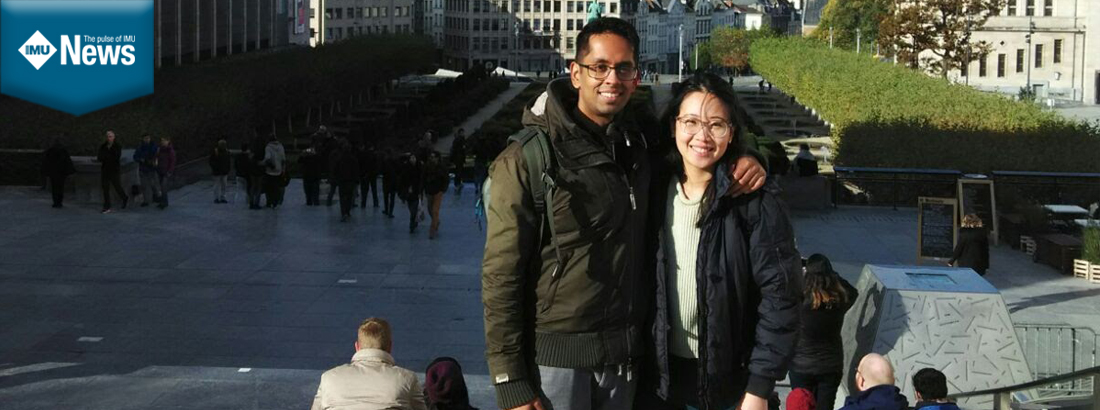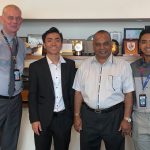Kuhanesh Janardanan started his medical degree at IMU in 2008 and completed his degree at University of Southampton in 2014. He is currently working as a medical demonstrator at the University of Central Lancashire. He shares with us his journey in this interview. What does a Medical Demonstrator do? In most universities, it usually involves teaching anatomy as an anatomy demonstrator. However, with the University of Central Lancashire (UCLan) being the newest university in the UK, the job role was expanded to encompass clinical skills. However, that quickly changed. I’ve also been involved in giving full lectures; leading small group teachings in PBL, professionalism, ethics, etc.; standard setting exams; assessing OSCEs; assessing student selective component (SSC) works and portfolio and much more. Really we’ve had to do an abundance of things! However, it has all been made a lot easier as I have great colleagues who make each workday a joy.  What are your other contributions to the university? I’ve helped create some of the clinical skills and anatomy workbooks for Phase 1 (pre-clinical years). I’ve also tried to be at the forefront of incorporating more technology in learning as I have a particular predisposition for anything tech-related. This might involve using the Anatomage table (an anatomy visualisation system) while teaching or even drawing/editing medical pictures in Photoshop for the students to enhance their understanding. Currently I’m involved in developing materials for the students’ clinical years. Why did you choose to work in University of Central Lancaster? I’ve always loved teaching. I’ve been doing it since I was in high school and there’s always a part of me that wanted to take that interest further. I just came off finishing my FY2 post (ie housemanship) and with one year to go before moving to Singapore, I wanted to make sure it was a particularly beneficial year for me. It was thus rather serendipitous that this post was available at the same time. I figured it’d be a welcome addition to my CV and would serve as a great stepping-stone for me to get into the world of academia. Plus, I was interested in seeing how a new medical school’s curriculum was developed. The first cohort of students only started in 2015.
What are your other contributions to the university? I’ve helped create some of the clinical skills and anatomy workbooks for Phase 1 (pre-clinical years). I’ve also tried to be at the forefront of incorporating more technology in learning as I have a particular predisposition for anything tech-related. This might involve using the Anatomage table (an anatomy visualisation system) while teaching or even drawing/editing medical pictures in Photoshop for the students to enhance their understanding. Currently I’m involved in developing materials for the students’ clinical years. Why did you choose to work in University of Central Lancaster? I’ve always loved teaching. I’ve been doing it since I was in high school and there’s always a part of me that wanted to take that interest further. I just came off finishing my FY2 post (ie housemanship) and with one year to go before moving to Singapore, I wanted to make sure it was a particularly beneficial year for me. It was thus rather serendipitous that this post was available at the same time. I figured it’d be a welcome addition to my CV and would serve as a great stepping-stone for me to get into the world of academia. Plus, I was interested in seeing how a new medical school’s curriculum was developed. The first cohort of students only started in 2015. 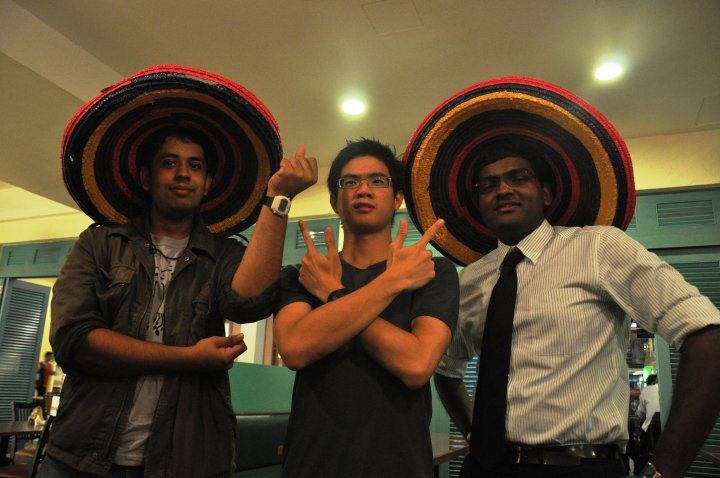
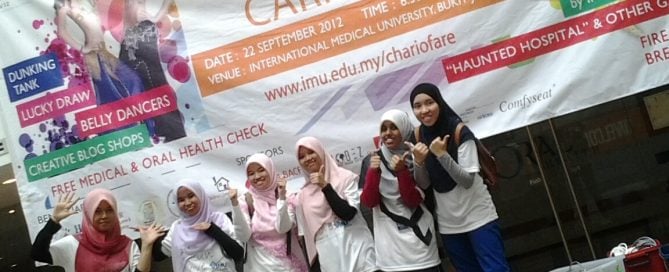 Describe your experience at:
Describe your experience at:
| University of Southampton |
| It is challenging to try to encapsulate my entire experience in a concise manner; mostly because it served as such a contrasting and formative few years for me. There were some of the expected struggles initially due to homesickness and the massive change in culture, but I did enjoy the independence. Acclimatising to the weather took a bit longer though. Experiencing all four seasons within the course of one day was no easy task. My advice for British weather: Constant vigilance! However, overall, it was a blast. If travel broadens the mind then living in a different country can just outright reshape the way you think about things. I’ve met so many amazing people and had a lot of wonderful experiences in Southampton which have shaped me to be the person I am today. The biggest paradigm shift for me personally was how I would constantly try new and different things. Like going to the rifle club, Wing Chun society or even trying out capoeira. I learnt so many new things outside of medicine, and that brought me an immense amount of joy. And to top it all off, I met Mun Yi, my girlfriend, in Southampton. She has made me a better person and continues to do so each passing day. |
| International Medical University |
| In one word: Amazing. I’ve always been an introvert and still am, but I had to come out of my little shell in IMU. During orientation, I was chosen by my group to do the solo performance for variety night (where I sang a song in Mandarin). Since then, it felt like every week was a regular barrel of laughs. By the end of my two and a half years there, I’ve had more unforgettable moments than I can list and most importantly, I’ve made a lot of wonderful friends. Honestly, I frequently reflect back to my IMU days and give thanks to God that he surrounded me with such fabulous people who made every memory one of fondness. It was still difficult though! The IMU lecturers demanded a lot from us, and I’m incredibly grateful that they did because it cemented my foundation in medical knowledge. I particularly remember Dr Nilesh’s rapid-fire lectures and how by the end of it, it feels like I’ve learned everything I’ll ever need to know about anatomy. |
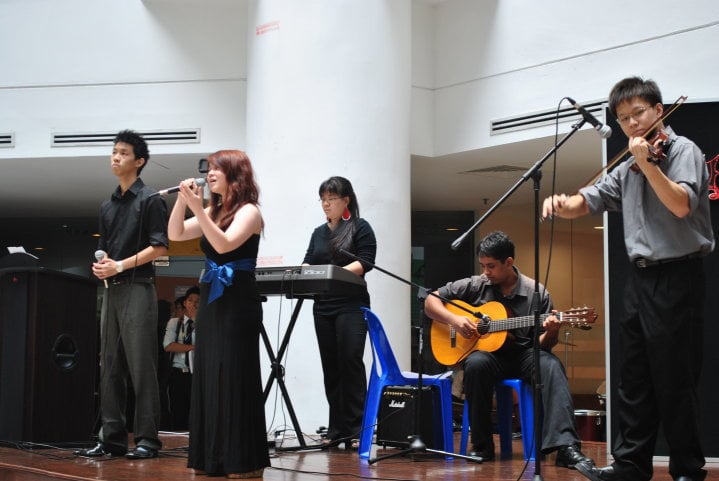
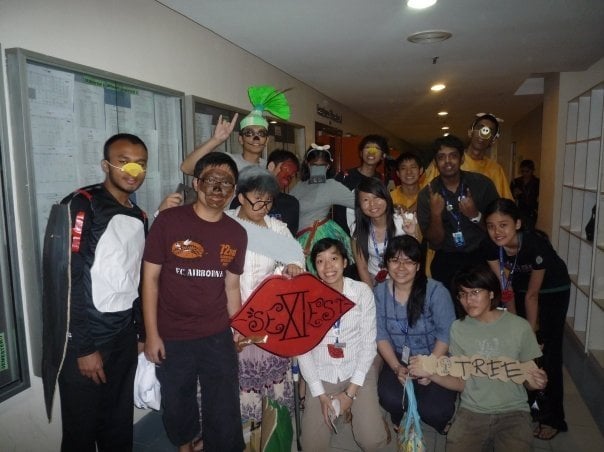 Previously, you have worked with your friends from IMU to welcome the juniors transferring to partner schools, how do you think this has helped the students? I think I’ll preface this by saying that one of my favourite things about IMU is that it fosters a culture wherein the seniors are always looking out for their juniors. It all begins from the selfless volunteer Orientation Officers. With that already being something that the juniors are comfortable with, it makes the process easier. The whole process of moving to a new country can seem rather nebulous and intimidating and we wanted our juniors to feel comfortable with approaching us. So when we moved to Southampton a few of us, (e.g. Wen Peng, Tay) wanted to make the transition easier for the juniors; it’s unflinchingly difficult to uproot yourself and move to a different country.
Previously, you have worked with your friends from IMU to welcome the juniors transferring to partner schools, how do you think this has helped the students? I think I’ll preface this by saying that one of my favourite things about IMU is that it fosters a culture wherein the seniors are always looking out for their juniors. It all begins from the selfless volunteer Orientation Officers. With that already being something that the juniors are comfortable with, it makes the process easier. The whole process of moving to a new country can seem rather nebulous and intimidating and we wanted our juniors to feel comfortable with approaching us. So when we moved to Southampton a few of us, (e.g. Wen Peng, Tay) wanted to make the transition easier for the juniors; it’s unflinchingly difficult to uproot yourself and move to a different country.
I think it helped them feel like they have someone to turn to should they need answers. And while the university admin can help with a lot of it, there are particular questions which they are perhaps not prepared to tackle. Say, questions about cultural differences or any gaps in knowledge that would apply specifically to IMU students.
We’ve been through the same rigmarole, and there’s no reason we can’t pass on what we’ve learnt. What do you do in your spare time? Oh boy, get ready for a long list: Basketball, gaming, reading, video editing, sound editing, computer coding, studying, playing the guitar, learning to play the harmonica, drawing, listening to music, watching movies, hanging out with friends, craft work, going to the gym, bouldering, bible study, church activities, cooking, learning Spanish. I just enjoy learning new skills in general! 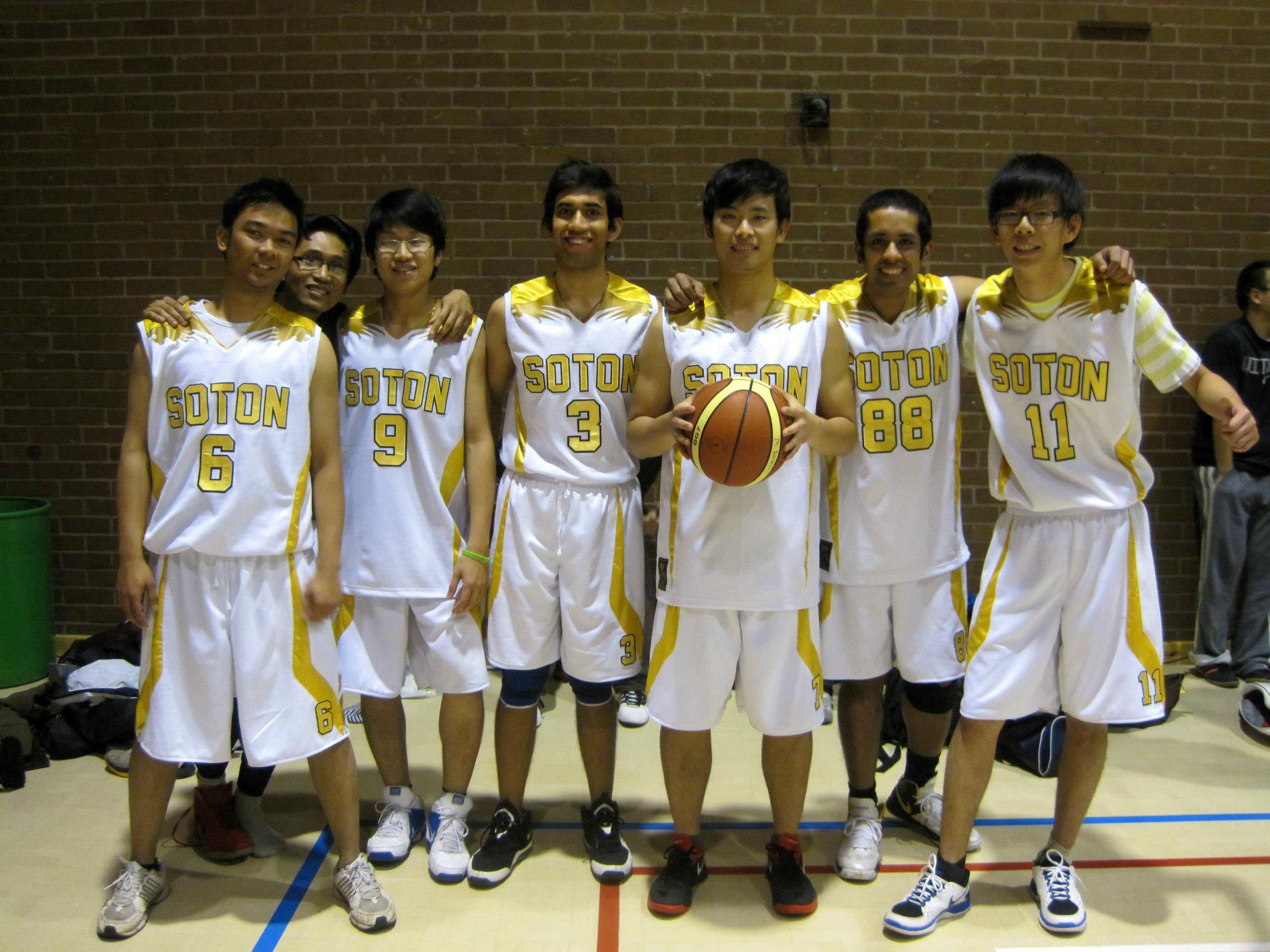 Future plans
Future plans
I’ll be moving to Singapore later this year to work as an MO. Further into the future, I plan to get back into Academia, and I’ll be holding one foot at the door till then. Given the opportunity, I’d also love to do a masters in Christian theology.
On a personal note, I’m putting plans into place to hopefully start my own podcast on general knowledge while also producing teaching materials on Youtube. If all else fails though, the most important goal is to get dogs. The more the merrier. I miss my dogs so much.
| Advice for Juniors |
| Don’t spend all your time in university just studying. Grades aren’t everything, and you don’t want to look back at your university years with regret and disdain. I know our culture makes it difficult as we have a particular emphasis on grades but grades are not everything. Also, don’t compare your studying style to others. Just because you can’t study 15 hours a day doesn’t mean you’ve not imbibed as much as someone who can. Pave your own path and find out what works for you. You’ll be doing it for the rest of your life, and you need something that’s sustainable. |




